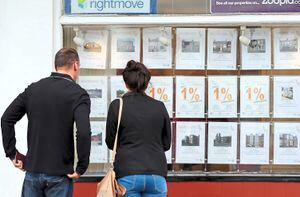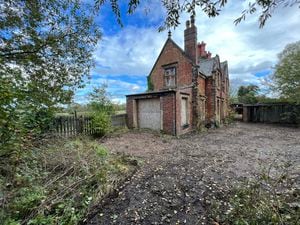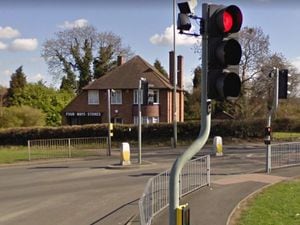Is Shropshire heading for a house price crash?
A suggestion that Britain could suffer another property crash has been played down by estate agents in Shropshire.

Some economists have warned the country could be heading towards a crash potentially as severe as the one that left a million people trapped in negative equity in the 1990s.
But that gloomy outlook was today questioned by estate agents in the county, who said they would be very surprised if there was any sudden downturn in the market.
A study by the respected London School of Economics warns that house prices could be heading for a near-40 per cent drop in house prices.
That would see the average house price in Telford fall by £62,773 from £156,993 to £94,220, and the average property in Shropshire district fall by £80,733, from 201,833 to £121,100.
Stuart Farquhar, a senior economics lecturer at Wolverhampton University, said three major factors had come together that could signal a potentially large drop in house prices: excessive personal debt, a lack of consumer confidence, and a return to inflation causing people to feel the pinch.
“The fact that consumer debt is still at a level that is not much different from before the financial crash means it is no surprise that people are predicting a big fall,” he said.
“Consumer confidence is also down, and then there is the rise in inflation which has been caused by the fall in the exchange rate.
“Consumer confidence is about where we would expect it to be in the event of a Brexit, and attempts to replace that with an increase in exports has not happened.”
However, Bill Brookes of D B Roberts estate agents, which operates throughout Shropshire and the West Midlands, said he would be very surprised if there was a downturn of anything like that forecast by the LSE – at least in Shropshire.
“They are in London, so their study is probably quite London-centric,” he said.
“London and the south-east will be far more affected by Brexit in terms of losing a good part of the City, and the international drug testing centre which employs a lot of highly skilled people on high salaries.
“But Shropshire, Staffordshire and the West Midlands are relatively stable.”
“In the end, people will still need somewhere to live, and supply and demand applies to renting as well, so I don’t see any great shift towards renting.
“In our experience, since 1964 we have got through five property recessions, and we have never seen a downturn approaching anything like that.”
Katie Hatten, of Fodens estate agents in Telford was also surprised by the forecast.
“As it stands right this month, in the area we cover the market still seems to be moving,” she says. “It did stall a bit around the election, but it seems to be starting to move again, I think the demand is here. I wouldn’t imagine such a sudden fall, but then again, you can never be certain.”
While the financial crash of 2008 caused the biggest single-year drop on record, with average house prices falling by 16.2 per cent, the slump was comparatively short-lived, with prices hitting a low point in March 2009, before showing a slight recovery. By contrast, the crash which followed the boom of the late 1980s saw house prices drop by 37 per cent over the six years from 1989.
Professor Paul Cheshire, of the LSE, said history suggested another ‘correction’ is now due.
He said: “We are due a significant correction in house prices. I think we are beginning to see signs that correction may be starting.
“Historically, trends seem always to start in London and then move out across the rest of the country. In the capital, you are already seeing house prices rising less rapidly than in other parts of Britain.”
Prof Cheshire believes it is the inflationary pressures, coupled with stagnant wages, that will be the real catalyst for a crisis. Inflation hit 2.9 per cent last month, while the average pay packet grew by just 2.1 per cent, meaning that millions of people have effectively taken a pay cut. Prof Christian Hilber, also of the LSE, warns that the economic fall-out from the Brexit vote could also be a major factor.
He said: “If Brexit leads to a recession or sluggish growth for extended periods, then an extended and severe downturn is more likely than a short-lived and mild one.
The National Association of Estate Agents said only 23 per cent of the homes sold in May fetched their asking price.
And history suggests Britain is now also at the point of the economic cycle when a crash is likely to happen. The market typically experiences a correction about every eight years – and the last major fall was in 2008-9.
Wolverhampton University’s Stuart Farquhar says it is difficult to say if any crash would be of a scale seen in the 1990s, but adds: “It’s certainly possible. There will be a significant correction, whether it will be to that extent, I don’t know.”
He says there is on e mitigating factor which provides some hope.
“Interest rates are still extremely low, whereas in the 1990s they were very much higher, so perhaps you wouldn’t expect it to be quite that severe.
“House prices have already started to fall, and it’s likely to continue through the next 12 months.”





